Can the next SNP leader unite the party?
- Published
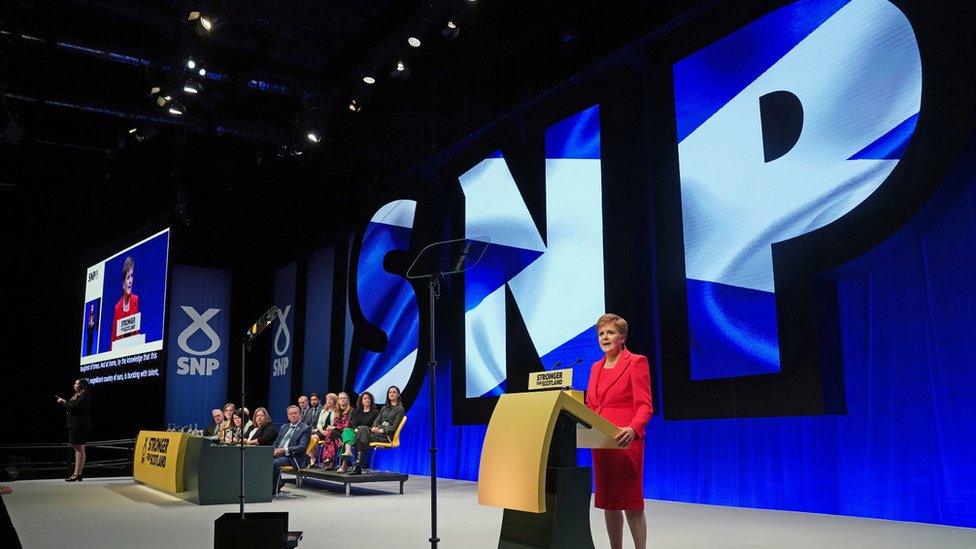
The three candidates to replace Nicola Sturgeon as SNP leader and first minister have at least one thing in common - they each aspire to be unifying figures.
When Kate Forbes entered the contest she highlighted her desire to "unite the party and the Yes movement".
Ash Regan said she would "bring back unity" and would "take the SNP forward together".
Humza Yousaf offered to "reach across the divisions… and bring people together".
Worthy aspirations for anyone seeking to takeover the leadership of an increasingly fractious party.
How any of the three candidates would actually deliver the promised unity is much harder to see, especially at the end of a week of sometimes bitter infighting.
Kate Forbes fractured her own campaign support by making clear that while she has no plans to unpick the law enabling gay marriage, she would not have voted for it.
Five senior politicians who were either in her camp or heading that way have since deserted her. They include ministers Tom Arthur, Clare Haughey and Richard Lochhead, backbench MSP Gillian Martin and MP Drew Hendry.
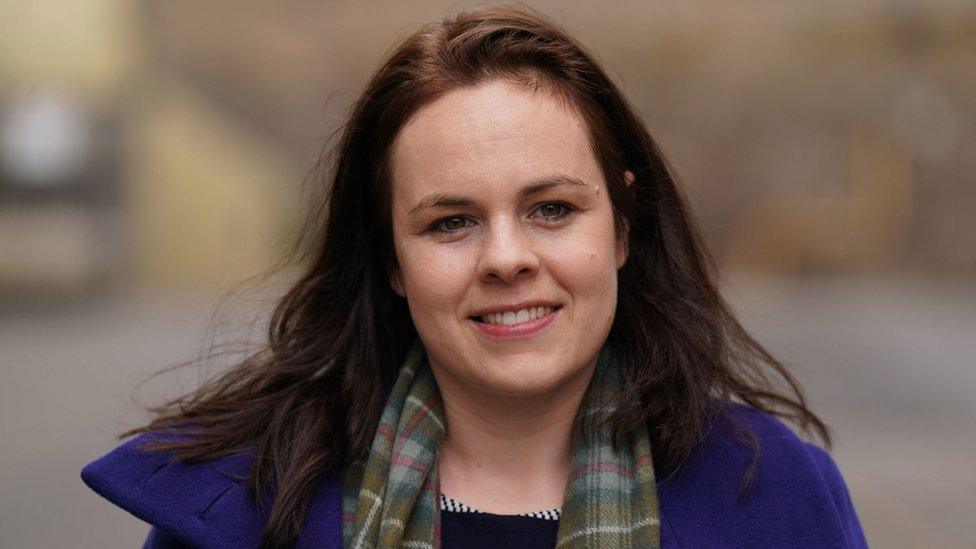
Kate Forbes has tried to reset her leadership campaign
There was then a spat between the Forbes campaign and the deputy first minister, John Swinney, who questioned the suitability of someone with Kate Forbes' views for the highest office.
She has since tried to reset her campaign by committing to protect the rights of everyone to live and love without fear or harassment, describing herself as "heartsore" at the hurt some of her comments have caused.
Ms Forbes has also said that she would be "loath" to challenge the UK government's section 35 order blocking the gender recognition reform bill becoming law.
That has antagonised the SNP's power-sharing partners in the Scottish Greens who issued a statement insisting that the UK's intervention "must be challenged robustly".
It is hard to imagine the SNP/Green arrangement continuing in its current form if Ms Forbes becomes first minister. Her strong emphasis on economic growth could place further strain on relations.
The power-sharing deal is probably even less likely to survive if Ash Regan wins the contest.
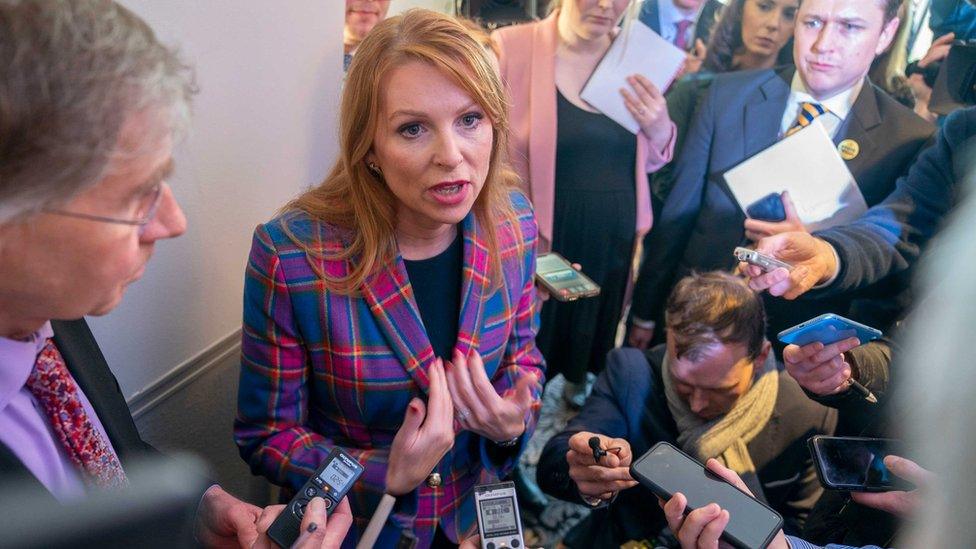
Ash Regan resigned over the gender recognition reform bill
She has committed to dropping the gender recognition reform bill, over which she resigned from the Scottish government as community safety minister.
She has also prioritised the dualling of the A9 and the A96 and promised to stand up for oil workers rather than support an accelerated path to net zero carbon emissions if that threatens North Sea jobs.
By contrast, Humza Yousaf has declared himself a "wholehearted" supporter of the SNP/Green tie-up which gives the Scottish government a stable majority in parliament.
Like Nicola Sturgeon he is committed to going to court to defend Holyrood's gender reforms - one reason he is seen as something of a continuity candidate.
Legal action would no doubt be welcomed by Greens and SNP supporters of the legislation, but does little to reassure those in the SNP who opposed it, that their concerns have been heard.
While Humza Yousaf is a socially-liberal politician compared to the socially-conservative Kate Forbes, it is a matter of record that he did not take part in the final Holyrood vote on gay marriage.
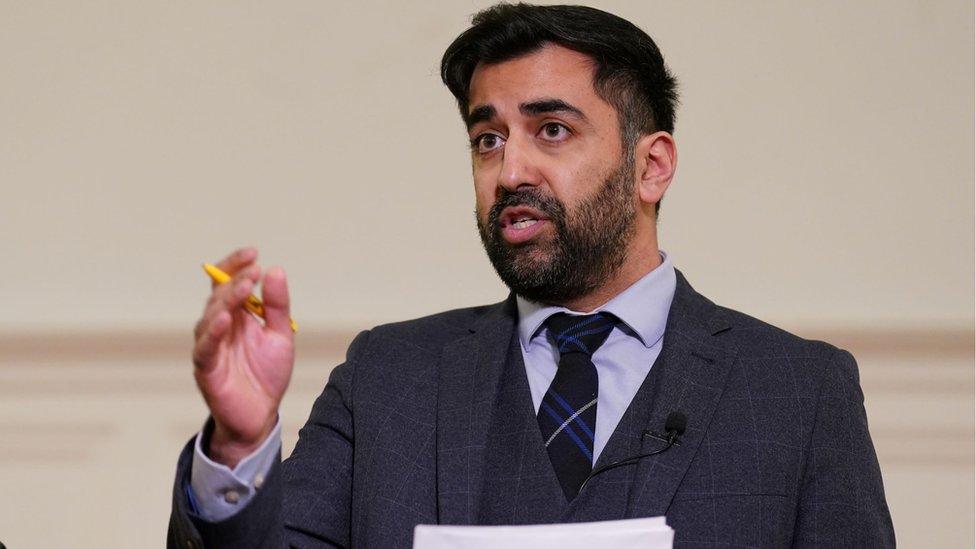
Humza Yousaf says he is "not wedded" to the idea of using a general election as a de-facto referendum.
His explanation is that he had an important meeting with a Pakistani diplomat about the case of a Scot facing the death penalty.
However, the minister responsible for the same sex marriage legislation, Alex Neil - who is a Forbes supporter - tells a different story.
He claims Mr Yousaf timed the appointment to avoid the vote because he was under pressure from some in the Muslim community not to back reform.
Perhaps the biggest threat to Mr Yousaf's campaign is his record in government. As health secretary he is in charge of the NHS at a time of enormous strain.
This week's report from the finance watchdog, Audit Scotland, suggested Mr Yousaf's recovery plan after the pandemic was not on track and that NHS waiting had got worse since it was published.
At Holyrood question time, Nicola Sturgeon highlighted record spending on the NHS and that Mr Yousaf has managed to avert strike action in the service. But that did not stop opposition leaders renewing calls for his resignation.
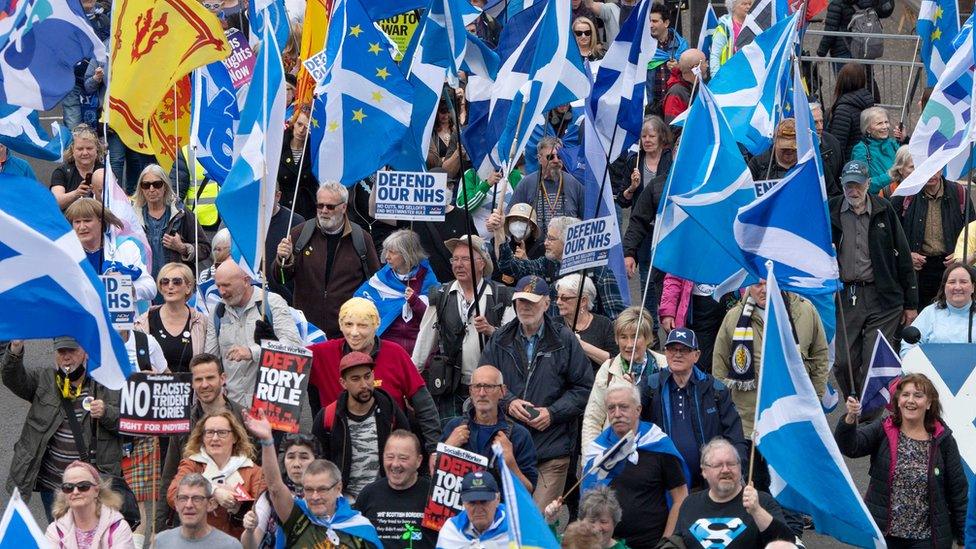
Independence is likely to emerge as an even bigger dividing line in this contest.
This is where Humza Yousaf breaks with the current first minister. He has said he is "not wedded" to the idea of using a general election as a substitute referendum.
My understanding is that he is very unlikely to back that approach. Instead, his emphasis is on building sustained majority support for independence to persuade the UK government to agree to indyref2.
Kate Forbes has also talked of the need to build "unstoppable" levels of support for independence. She told the BBC the strategy needed a "reset" and that it was not as simple as targeting a majority at an election.
Before Brexit, the SNP took a similar approach - that another referendum should happen if and when independence appeared to be the settled will of the Scottish public.
Meanwhile, Ash Regan has doubled down on the election route to Scottish statehood, arguing that achieving more than 50% of the vote should trigger negotiations on Scotland's withdrawal from the UK.
She is also proposing to bring together all independence-minded organisations under the umbrella of an independence convention.
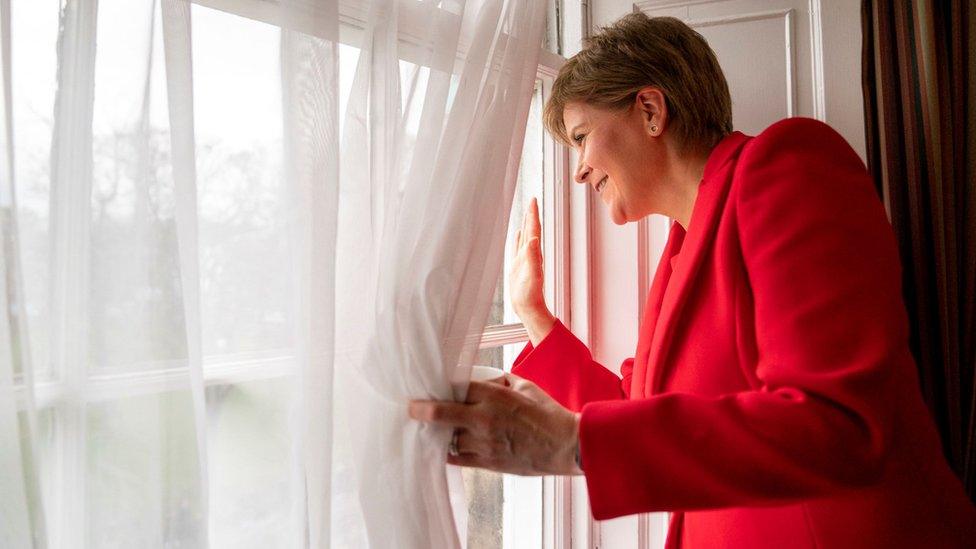
The end of the Nicola Sturgeon era is approaching
Her position on this and some other key policies is very similar to the platform of the Alba party, led by Alex Salmond.
There will be much to discuss in the three-way leadership debates being organised by the SNP and by broadcasters.
Whoever emerges as the winner when voting ends on Monday 27 March, this is the end of an era in the SNP and Scottish politics.
The end of the Sturgeon era, certainly. The end of the Salmond/Sturgeon era too - the pair having taken control of their party and then the Scottish government together.
That was nearly two decades ago and this is the first time since 2004 there has been a contest to decide who takes over the party and what direction it should take.
The three candidates represent a generational shift away from those who have built and run the SNP for more than 30 years.
Alex Salmond's gone. Nicola Sturgeon's going. John Swinney's stepping back too. Ian Blackford has already done so. As has Mike Russell, who now has the honorary post of party president.
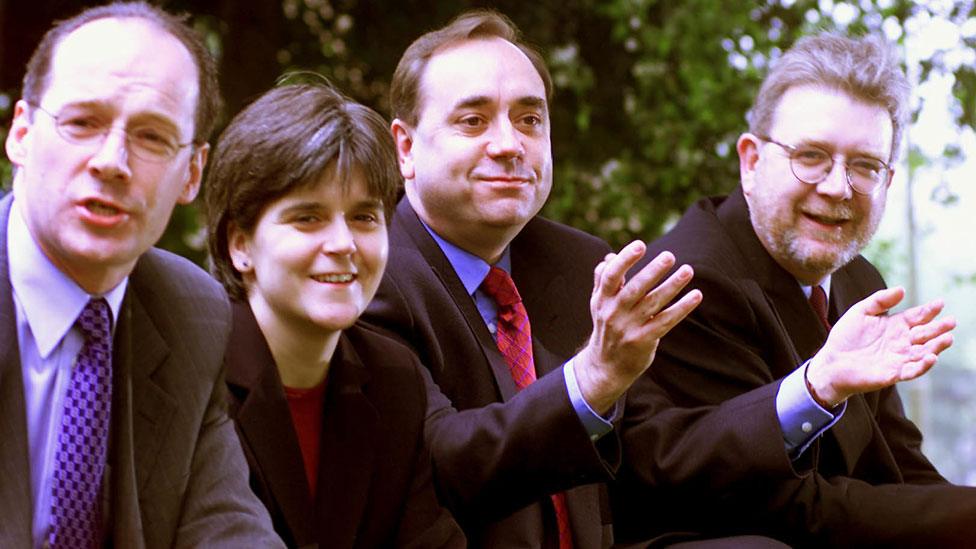
John Swinney, Nicola Sturgeon, Alex Salmond and Mike Russell pictured in 1999
All three potential leaders have only established themselves in elected politics since the SNP took power at Holyrood.
Kate Forbes and Humza Yousaf were still at school when the Scottish Parliament first opened in 1999.
Interestingly, those two candidates were once named by Nicola Sturgeon as potential successors - not that succession planning has been an obvious feature during her time in charge.
The next SNP leader and first minister will either be the second woman to hold these offices or the first to do so from a black or Asian minority ethnic background.
They will face huge challenges in rebuilding the NHS, managing the public finances in a cost of living crisis, and trying to break the deadlock over independence.
Trying to unify their party in the process could be one of the biggest challenges of all.